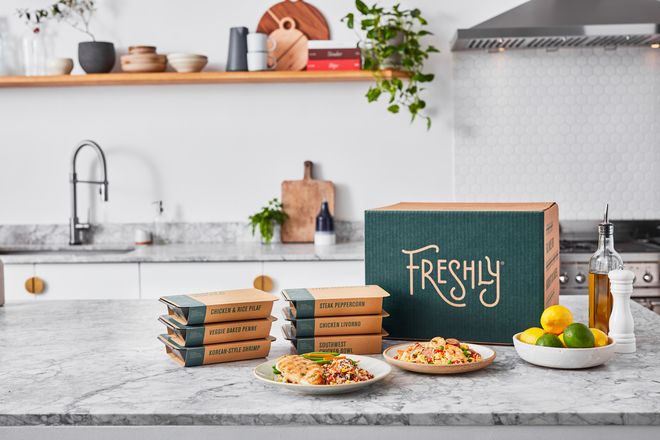As people ring in the new year, ads for meal-kit delivery services seem to pop up more than usual, encouraging consumers to try new routines in eating, promoting convenience and healthy choices. But consumers weighing their options will need to cross off a once-key player in the heat-at-home market.
Fresh-prepared meal delivery service Freshly updated its website late December, announcing its cease of operations.
“It is with a heavy heart that we announce the Freshly meal delivery service will be ceasing operations,” the message said. “This is a difficult time as we say goodbye to our incredible community.”
Founded in New York in 2015, Freshly was acquired by Nestlé in 2020 for about $950 million. During the height of the pandemic and at-home eating, Freshly shipped more than 1 million meals per week to customers across the U.S. A year later, the company revealed plans to open additional facilities in New Jersey and Georgia to increase production and order fulfilment capacity.
However, the company then faced difficulties as consumers dined out more in 2021, and cash-strapped shoppers reduced the use of subscription services in 2022 amid record-high inflation and economic uncertainty.
In November, Nestlé merged with Kettle Cuisine, a fresh foods manufacturer servicing retail and food service customers, in an effort to maintain customer retention and increase subscriptions for Freshly.
Mark Schneider, chief executive officer at Nestlé, discussed the challenges facing Freshly during an investor seminar late last year.
“A D2C (direct to consumer) channel for a business of this type is simply too narrow. As the pandemic waned, clearly, customer retention did not maintain the levels we saw during the pandemic and hence, the narrowness of this business case became so much more apparent,” he said. “The demise of Freshly’s delivery service offers a general lesson that may be applied to many D2C business models. Unless you have something that is truly premium, truly high involvement, truly fully personalized, a pure D2C model at times can be too narrow”.
“With the business of Kettle Cuisine, we are bringing together two business models that have one thing in common, and that is the focus on freshness,” Schneider added.
Despite the merger, Freshly began to reduce its staff and shut down facilities. The company filed a notice in Maryland that it would shutter its warehouse and lay off more than 450 employees in the state. Similar notices were filed in Arizona and New York.
Freshly is not alone in facing challenges in the meal subscription market.
Blue Apron in December announced plans to downsize its corporate workforce by 10 percent following an 8 percent decline in customers during the third quarter of 2022. In October, HelloFresh revealed plans to shut down its Bay Area production facility and lay off more than 600 employees.
For Freshly customers, orders can be placed through Jan. 17, with the final day of shipping marked Jan. 21, 2023.


